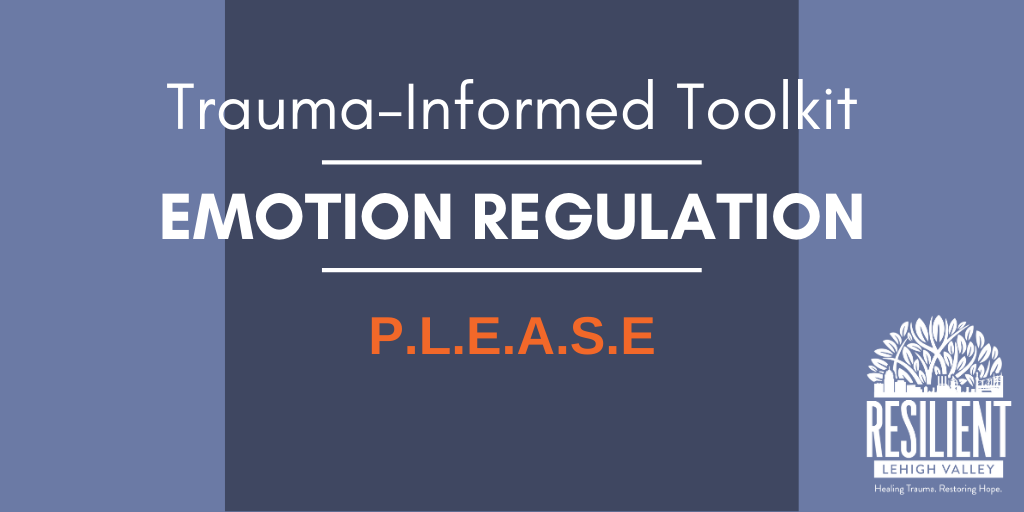RESOURCES
Trauma-Informed Toolkit: Emotion Regulation – P.L.E.A.S.E
Trauma-Informed Toolkit: Emotion Regulation – P.L.E.A.S.E
Your body and mind are closely linked, and the health of one directly directly affects the other. An unhealthy body can make it difficult to manage your emotions. Our body responds to the way we think, feel, and act. This can be developing high blood pressure or a stomach ulcer in a particularly stressful event. The acronym “P.L.E.A.S.E.” can be used to help you remember important aspects of this connection. Treat Physical Illness. Eat healthy. Avoid mood-altering drugs. Sleep well. Exercise. Striving to follow these five steps will help you maintain good mental health. For resources on bringing mindfulness into your day and building your trauma-informed toolbox, click the button below.
P.L.E.A.S.E
RELATED RESOURCES
Organizational Self-Assessment: Adoption of Trauma-Informed Care Practice
The Organizational Self-Assessment is designed for organizations interested in improving their policies, procedures, practices, and social and physical...
LEARN MORETrauma-Informed Organizational Toolkit for Homeless Services
The Toolkit offers homeless service providers concrete guidelines for how to modify their practices and policies to ensure...
LEARN MOREEmotional Regulation Plan for Youth in Secondary Grades
Click below to get a copy of our Emotional Regulation plan for youth in Secondary Grades. This emotional...
LEARN MOREEmotional Regulation Plan for Children in Third Through Fifth Grade
Click Below to check out this great resource! It’s a great way to teach kids how to emotionally...
LEARN MOREEmotional Regulation Plan for Pre-Kindergarten through Second Grade
Click below for a detailed Emotional Regulation plan that details guidelines and tips on how to implement this...
LEARN MORETrauma-Informed Toolkit: SEL – Small-Group SEL Facilitation
Social-emotional learning is a great way to build student belonging and community. Check out this toolkit that includes...
LEARN MORE
